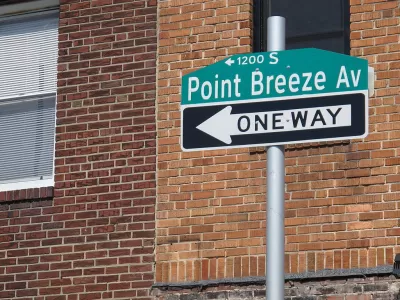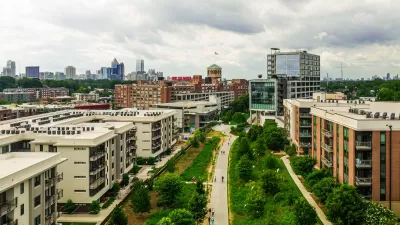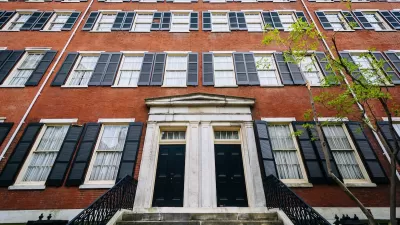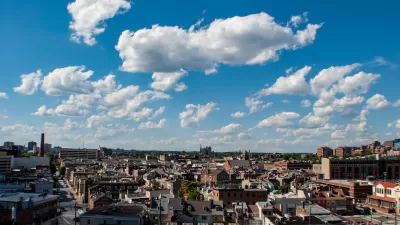A comprehensive national study finds that for many original residents of gentrifying neighborhoods, the effects of gentrification can have positive effects.

"A new study [pdf] released Tuesday by the Federal Reserve Bank of Philadelphia finds that the consequences of gentrification for original neighborhood residents are often better than they are typically perceived," reports Caitlin McCabe.
Authors are billing the new study as the first "comprehensive, national, causal evidence" into the effects of gentrification on longtime residents of neighborhoods.
"Specifically, the authors find that gentrification reduces 'original' adult residents’ exposure to neighborhood poverty, raises home values, and increases rent only for 'more-educated renters,' but not for 'less-educated' ones," according to McCabe. "Similarly, the study finds that children living in a neighborhood before it gentrified also are exposed less to neighborhood poverty and receive better opportunities for education and employment."
The study didn't just find benefits, also finding "that gentrification causes both less-educated renters and less-educated homeowners to leave a neighborhood at higher rates than they normally would during a typical 10- to 14-year period," according to McCabe.
Writing from Philadelphia, McCabe also presents an infographic from the study that maps the findings of the study specific to that city. Another infographic compares gentrification effects between American cities. According to that finding, Washington, D.C. has the most gentrifying effects of the major cities reported. Boston follows distantly with the second most gentrifying areas.
FULL STORY: Effects of gentrification on longtime residents are not as negative as typically perceived, Philly Fed says

Planetizen Federal Action Tracker
A weekly monitor of how Trump’s orders and actions are impacting planners and planning in America.

The Simple Legislative Tool Transforming Vacant Downtowns
In California, Michigan and Georgia, an easy win is bringing dollars — and delight — back to city centers.

San Francisco's School District Spent $105M To Build Affordable Housing for Teachers — And That's Just the Beginning
SFUSD joins a growing list of school districts using their land holdings to address housing affordability challenges faced by their own employees.

In More Metros Than You’d Think, Suburbs are Now More Expensive Than the City
If you're moving to the burbs to save on square footage, data shows you should think again.

The States Losing Rural Delivery Rooms at an Alarming Pace
In some states, as few as 9% of rural hospitals still deliver babies. As a result, rising pre-term births, no adequate pre-term care and "harrowing" close calls are a growing reality.

The Small South Asian Republic Going all in on EVs
Thanks to one simple policy change less than five years ago, 65% of new cars in this Himalayan country are now electric.
Urban Design for Planners 1: Software Tools
This six-course series explores essential urban design concepts using open source software and equips planners with the tools they need to participate fully in the urban design process.
Planning for Universal Design
Learn the tools for implementing Universal Design in planning regulations.
Smith Gee Studio
City of Charlotte
City of Camden Redevelopment Agency
City of Astoria
Transportation Research & Education Center (TREC) at Portland State University
US High Speed Rail Association
City of Camden Redevelopment Agency
Municipality of Princeton (NJ)





























